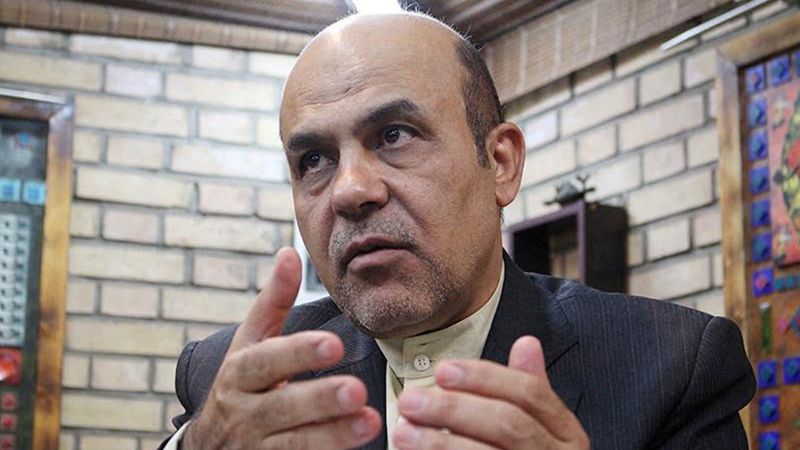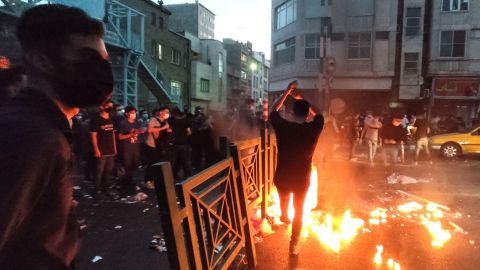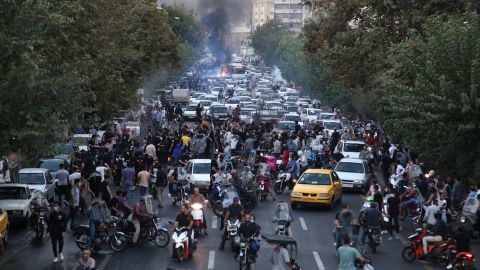
CNN
—
A dual British-Iranian citizen was hanged by Iran on charges of espionage and corruption, a state-affiliated media outlet reported Saturday, the latest in a string of executions carried out by a regime grappling with unprecedented protests across the country.
The Iranian official, Alireza Akbari, was executed for crimes including “corruption on earth,” according the Iranian judiciary-affiliated outlet Mizan. Akbari was charged with working as a spy for MI6, the British intelligence agency, and reportedly paid more than $2 million in various currencies – 1.805 million euros, 265,000 British pounds and $50,000 – Iranian state media reported Saturday.
British Prime Minister Rishi Sunak said he was “appalled by the execution.” He added on Twitter: “This was a callous and cowardly act, carried out by a barbaric regime with no respect for the human rights of their own people. My thoughts are with Alireza’s friends and family.”
Akbari allegedly provided information to foreign officials about 178 Iranian figures, including country’s chief nuclear scientist, Mohsen Fakhrizadeh, Iranian media reported. Fakhrizadeh was killed by a remote-controlled machine gun operating out of a car in 2020, according to state-affiliated Fars News. Iran’s top officials accused Israel of masterminding the plot at the time, without providing evidence.
Akbari purportedly carried out his intelligence work through the veneer of a private company focused on research and trade activities, working directly with research institutes in London that Iran claimed were headed by intelligence officials, Iran’s state news agency IRNA reported. IRNA also cited allegations that Akbari had meetings with an MI6 intelligence officer and former British Ambassador to Iran Richard Dalton.
Iran’s Supreme Court upheld the death penalty handed down to Akbari after deeming it to be based on “substantiated evidence,” according to IRNA.
Mizan did not specify when the execution was carried out. Akbari’s death sentence was announced just days ago, on January 11, after his conviction on spying for the United Kingdom. Akbari had denied the charges.
According to allegations published in Mizan on Wednesday, Akbari had been arrested “some time ago.” The BBC reported Akbari was arrested in 2019.
“On this basis and after filing an indictment against the accused, the file was referred to court and hearings were held in the presence of the accused’s lawyer and based on the valid documents in this person’s file, he was sentenced to death for spying for the UK,” Mizan said.
Akbari previously served as Iran’s deputy defense minister and was the head of the Strategic Research Institute, as well as a member of the military organization that implemented the United Nations resolution that ended the Iran-Iraq war, according to Iranian pro-reform outlet Shargh Daily. He served under Iranian President Mohammad Khatami, a reformist who was in office from 1997 to 2005, according to the BBC.
Though Iran does not recognize dual nationality, the execution of an individual holding British citizenship will likely further fuel tensions between Tehran and Western democracies, which have been critical of the regime’s response to anti-government demonstrations that began in September last year.
Iran has long ranked among the world’s top executioners, and Akbari is one of three individuals to receive a death sentence in the first weeks of 2023. Two young men, a karate champion and a volunteer children’s coach, were hanged last weekend after being convicted of killing a member of the country’s Basij paramilitary force. Both had allegedly taken part in the protests that began after a 22-year-old Kurdish-Iranian woman, Mahsa Amini, died while in custody of the country’s morality police.
Amini’s death sparked massive nationwide demonstrations against a regime often criticized as theocratic and dictatorial.

Critics have accused Tehran of responding to protests with excessive force – activist groups HRANA and Iran Human Rights say that 481 protesters have been killed – and using the country’s unjust judicial system to intimidate would-be demonstrators. United Nations human rights chief Volker Türk alleged that Tehran was “weaponizing” criminal procedures to carry out “state-sanctioned killing” of protesters.
As many as 41 more protesters have received death sentences in recent months, according to statements from both Iranian officials and in Iranian media reviewed by CNN and 1500Tasvir, but the number could be much higher.
Iranian state media has reported that dozens of government agents, from security officials to officers of the basij paramilitary force, have been killed in the unrest.

Though Akbari’s execution was, on its surface, unrelated to the recent protests, British Foreign Secretary James Cleverley alleged that the act was “politically motivated.” He said Iran’s charge d’affaires would be summoned over the execution “to make clear our disgust at Iran’s actions.”
“The execution of British-Iranian Alireza Akbari is a barbaric act that deserves condemnation in the strongest possible terms. Through this politically motivated act, the Iranian regime has once again shown its callous disregard for human life,” Cleverly said on Twitter. “This will not stand unchallenged.”
The UK government had urged Iran not to execute Akbari, and the Foreign Office said it would continue to support his family.
Amnesty International called Akbari’s execution “particularly horrific” and an “abhorrent assault on the right to life.” The rights group claimed that Akbari had said he was forcibly administered chemical substances, held in prolonged solitary confinement and forced to make recorded “confessions” repeatedly.
Amnesty urged the UK government to “fully investigate” these allegations of torture and ill treatment and “pursue all avenues to hold the Iranian authorities to account.”
